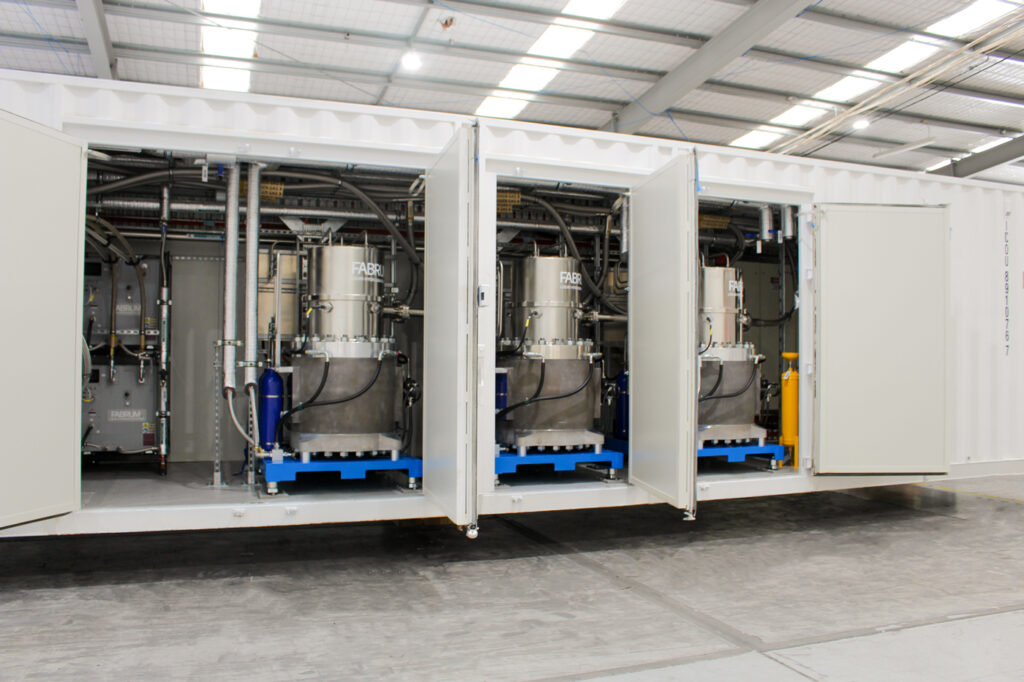Fabrum and Sumitomo have entered into a strategic collaboration targeting the burgeoning demand for liquid hydrogen within heavy transport and aviation sectors, sectors known for their significant carbon footprints and the urgent need for cleaner energy solutions.
According to the International Energy Agency, hydrogen’s potential in the transport sector is substantial, with projections indicating that hydrogen-powered vehicles could account for 18% of total road transport by 2050. This necessitates efficient hydrogen production and distribution methods, precisely the gap Fabrum and Sumitomo aim to bridge through their cooperation.
Fabrum’s liquid hydrogen production systems, engineered for mobility and flexibility, cater specifically to the demands of sectors like aviation that require portable, scalable solutions. Their systems, which can produce between 35 kg and 400 kg of liquid hydrogen daily, are also designed to fit in standard shipping container sizes, offering an adaptable solution for transportation nodes such as airfields and truck stops across Australia. This technical sophistication is critical in meeting the logistical challenges presented by hydrogen infrastructure needs.
The collaboration promises more than just technical know-how; it brings financial innovation to the table. Through Sumitomo’s expertise in offering tailored financing solutions, Fabrum’s technology could become more accessible to industries hesitant to invest heavily upfront. Economic barriers have been a significant hurdle in the expansion of hydrogen technology. According to recent reports, initial capital costs remain a primary concern for stakeholders interested in transitioning to hydrogen-based systems. By mitigating these costs, the partnership removes substantial barriers to entry, accelerating the adoption of hydrogen fuel technology.
Both companies signal their commitment to sustainable energy goals. Sumitomo’s dedication to achieving Net Zero by 2050 aligns with this move, as evidenced by their proactive efforts in climate change mitigation and sustainable business practices. This partnership underscores not only a commercial symbiosis but also a shared mission towards transformative environmental impact.
The implications of this partnership are far-reaching. As Japan, home to Sumitomo, and New Zealand, the birthplace of Fabrum, strengthen their collaboration, the global hydrogen market—valued at $142.1 billion as of 2022 by industry estimates—stands to benefit from the innovations spearheaded by these two giants. Japan’s recent legislative initiatives to promote a hydrogen society further bolster the partnership’s potential impact, fostering environments conducive to this technology’s growth.
Stay updated on the latest in energy! Follow us on LinkedIn, Facebook, and X for real-time news and insights. Don’t miss out on exclusive interviews and webinars—subscribe to our YouTube channel today! Join our community and be part of the conversation shaping the future of energy.





